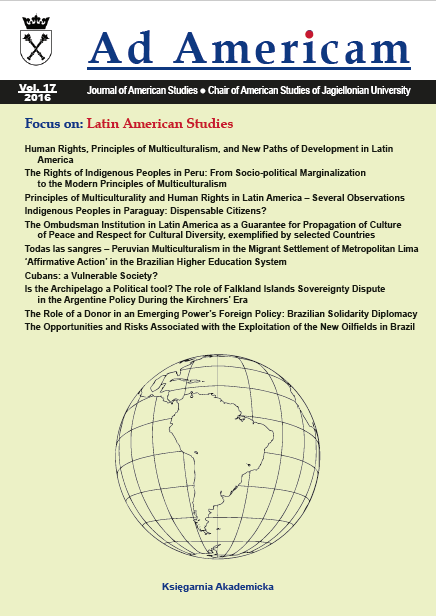The Institution of Ombudsman in Latin America as a Guarantee for Propagation of Culture of Peace and Respect for Cultural Diversity, as Exemplified by Selected Countries
The Institution of Ombudsman in Latin America as a Guarantee for Propagation of Culture of Peace and Respect for Cultural Diversity, as Exemplified by Selected Countries
Author(s): Joanna SkładowskaSubject(s): Human Rights and Humanitarian Law, Government/Political systems
Published by: KSIĘGARNIA AKADEMICKA Sp. z o.o.
Keywords: Ombudsman; Latin America; Protection of Human Rights; Promotion of Human Rights; Cultural Diversity
Summary/Abstract: The institution of the ombudsman is present in the majority of Latin American countries. In spite of differences in nomenclature or structure, it is characterized by several common features. It is a sui generis state authority, enjoying extensive autonomy and independence. Its main objective is to promote and protect human rights, and the assistance it provides is free and easily available. Introduction of the institution in Latin American countries was related to the democratisation processes that began at the end of the 1980s. This article presents a comparative analysis of ombudsmen in El Salvador (a country with a history of long-term internal conflict), Peru (a country that advocates multiculturalism), and Argentina (a country with a history of military dictatorship). Detailed discussion is preceded by general remarks regarding the genesis, typology and characteristics of the institution. Common initiatives and associations of Ibero-American ombudsmen will also be discussed. This analysis and its conclusions will argue that the institution is both a tool for implementing a culture of peace, and a guarantee for the respect of cultural diversity in Latin America.
Journal: Ad Americam. Journal of American Studies
- Issue Year: 2016
- Issue No: 17
- Page Range: 61-78
- Page Count: 18
- Language: English

